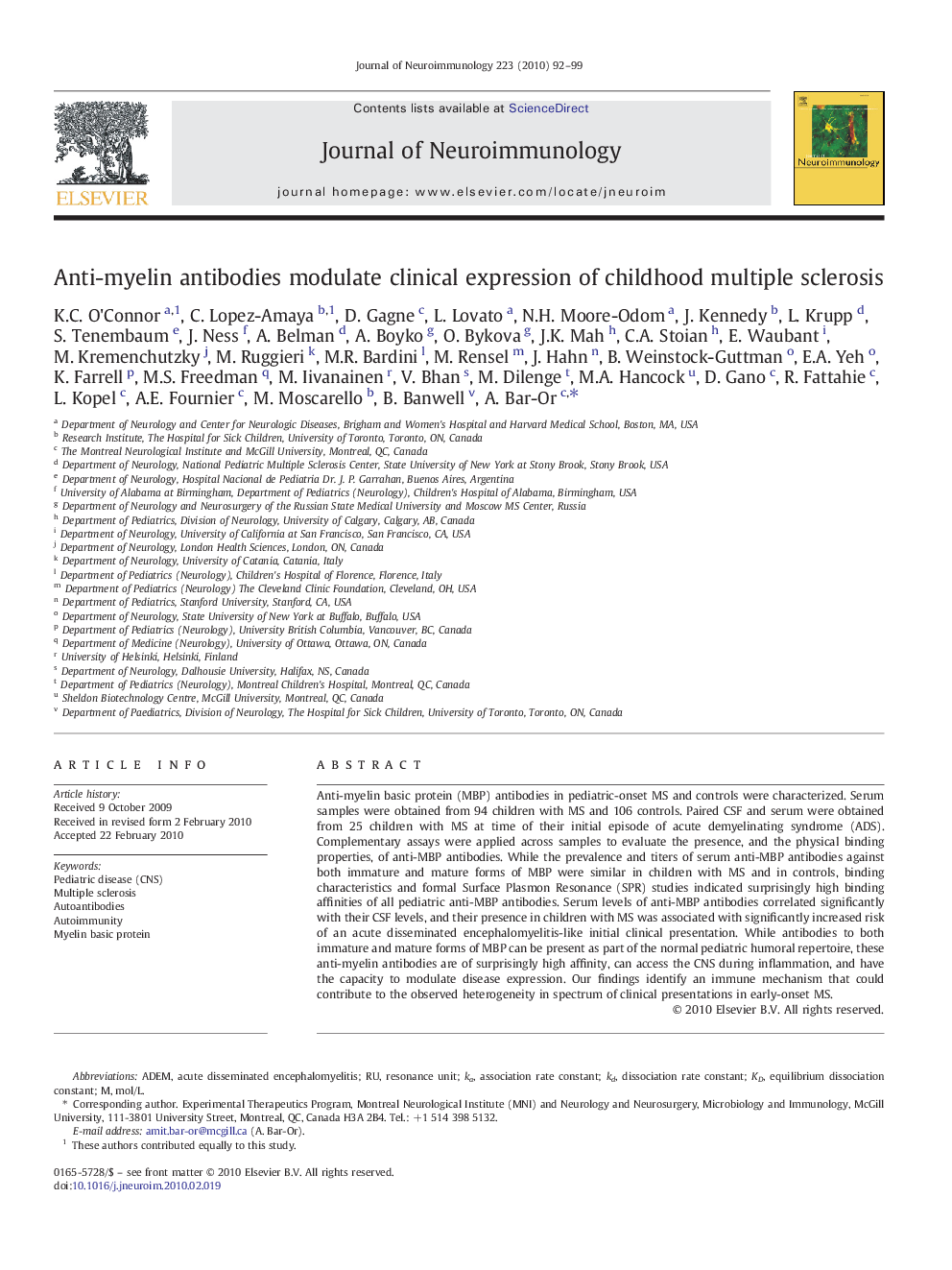| Article ID | Journal | Published Year | Pages | File Type |
|---|---|---|---|---|
| 3064716 | Journal of Neuroimmunology | 2010 | 8 Pages |
Anti-myelin basic protein (MBP) antibodies in pediatric-onset MS and controls were characterized. Serum samples were obtained from 94 children with MS and 106 controls. Paired CSF and serum were obtained from 25 children with MS at time of their initial episode of acute demyelinating syndrome (ADS). Complementary assays were applied across samples to evaluate the presence, and the physical binding properties, of anti-MBP antibodies. While the prevalence and titers of serum anti-MBP antibodies against both immature and mature forms of MBP were similar in children with MS and in controls, binding characteristics and formal Surface Plasmon Resonance (SPR) studies indicated surprisingly high binding affinities of all pediatric anti-MBP antibodies. Serum levels of anti-MBP antibodies correlated significantly with their CSF levels, and their presence in children with MS was associated with significantly increased risk of an acute disseminated encephalomyelitis-like initial clinical presentation. While antibodies to both immature and mature forms of MBP can be present as part of the normal pediatric humoral repertoire, these anti-myelin antibodies are of surprisingly high affinity, can access the CNS during inflammation, and have the capacity to modulate disease expression. Our findings identify an immune mechanism that could contribute to the observed heterogeneity in spectrum of clinical presentations in early-onset MS.
